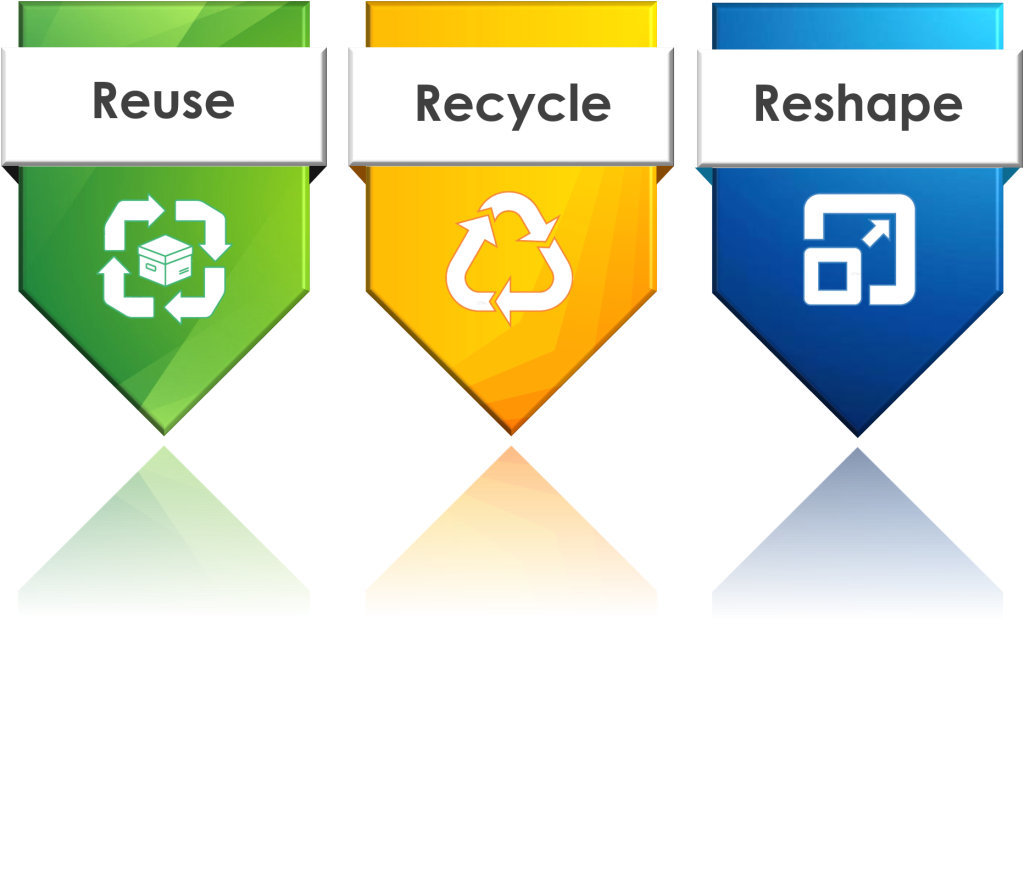By Nazhoon AlNashea, Echo/Event Management Team Member
In a world where environmental consciousness is no longer optional but essential, the event management industry holds a significant responsibility. Events, by their very nature, are resource-intensive, often generating considerable waste and consuming substantial energy. Recognizing this, SPE-KSA’s Event Management team has embarked on a journey to transform its event management practices to be more sustainable, aligning with the Kingdom’s broader vision of achieving net-zero emissions.
Our strategy, Echo, is not just about reducing our environmental footprint; it’s about creating a ripple effect that amplifies our impact. By integrating sustainable practices into every aspect of event logistics, marketing, and beyond, we aim to raise awareness and set a new standard for eco-friendly events within SPE-KSA and the wider community.
As part of this transformation, economic circularity plays a pivotal role. By embracing circular principles, we seek to minimize waste, maximize resource efficiency, and ensure that every element of an event can be reused, recycled, or repurposed. This approach not only supports our environmental goals but also drives innovation and economic efficiency, demonstrating that sustainability and success can go hand in hand. Through this commitment, we are not just planning events—we are designing a future where sustainability is at the core of everything we do.
Economic Circularity: Creating a Sustainable Model
Economic circularity is a concept that redefines our traditional “take-make-dispose” linear approach to resources. By rethinking how we design and reuse materials, economic circularity aims to reduce waste, conserve natural resources, and create systems that benefit both the environment and the economy. In simple terms, it’s about closing the loop on waste, ensuring that what we produce can be continuously utilized, leading to a more sustainable future.
Implementing such systematic and sustainable processes across all SPE-KSA events reduces energy costs and consumption, making our operations more efficient and cost-effective. For example, by standardizing and storing reusable branding materials, we have reduced the need for new production, which in turn lowers our energy expenditure. Additionally, our vendor contracts for recurring events ensure that materials are reused rather than disposed of, further reducing our environmental impact and contributing to cost savings.

Echo’s Three Pillars of Sustainable Event Management
At the heart of Echo are three fundamental pillars: Reuse, Recycle, and Reshape. These pillars guide our efforts to make every SPE-KSA event not just memorable but also environmentally responsible.
Reuse
One of the most effective ways to reduce waste is to reuse materials and assets across multiple events. At Echo, we have standardized our branding items, ensuring they can be used repeatedly without compromising on quality or appearance. This approach is supported by our dedicated storage facilities, which allow us to efficiently store and retrieve materials for recurring events. One notable example was during the Growth Quest workshop held in January this year with McKinsey & Co., where we invested in customized branding materials that were stored and later used multiple times throughout this term. By storing reusable branding items, we saved significant costs as well as reduced the need for repeated manufacturing, thereby supporting a more sustainable ecosystem.
Recycle
At Echo, we are committed to contributing to a circular economy by ensuring that all giveaways at our events are eco-friendly. Currently, we are running 100% sustainable consumables across our events, with all giveaways being fully recyclable or made from recycled resources. This practice reinforces our dedication to sustainability and ensures that every item we distribute leaves a minimal environmental footprint. Whether it’s a branded tote bag or a reusable water bottle, we are making sure that our giveaways echo our commitment to a sustainable future.
Reshape
Through strategic partnerships with vendors, we have introduced the concept of reshaping and rebranding used materials. Instead of discarding items like trophies, podiums, and stages after a single use, we extend their lifecycle by repurposing them for future events. For instance, by developing contracts with vendors for recurring events, we have secured high-quality materials at a lower cost, while also minimizing waste. This initiative exemplifies how reshaping materials contributes to both environmental sustainability and economic efficiency.
Echo’s sustainability efforts are deeply intertwined with the principles of economic circularity. By reusing, recycling, and reshaping materials, we are creating a closed-loop system that minimizes waste and maximizes resource efficiency. This demonstrates the financial benefits of adopting a sustainable economic model that meets our shared goal of achieving net-zero emissions.
The Future of Sustainable Event Management
The impact of our efforts has already been significant, with a 45% decrease in raw materials used, a 35% reduction in waste, and about 0.5 million Riyals in cost savings. As we continue to integrate sustainability into every aspect of our operations, the future of SPE-KSA’s events will shine with hope and commitment.
Echo is more than just a strategy; it’s a movement toward a sustainable tomorrow. By promoting and implementing eco-friendly practices across all SPE-KSA events, we are driving our collective ambition toward a sustainable future. We invite you to join us in spreading awareness about the importance of sustainable practices within and beyond SPE-KSA. Through social media and our online interactive page, we aim to extend our reach and amplify our impact. Together, we can create a more sustainable and better-shared future for all.

